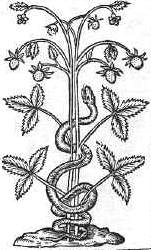Lady Macbeth: women and power
Lady Macbeth is a sinister figure: at the very outset she deliberately tries to suppress her feminine qualities in order to excercise power*. How might Shakespeare's audience respond to a woman seeking power?
Some women in the Renaissance were able to acquire an education; many managed properties as widows, or when their husbands were away; and in the background there were the extraordinary examples of Queen Elizabeth and Mary, Queen of Scots--the one admired, the other feared by many.
Lady Macbeth's power is excercised by indirection, through her husband--and she steadily loses that power after Duncan's death, fading into a lonely, guilt-ridden, and finally suicidal melancholy.
Footnotes
-
Power, gender, and evil
Come, you spirits
That tend on mortal thoughts, unsex me here,
And fill me, from the crown to the toe, top-full
Of direst cruelty. . .
(1.5.40-43) -
Family values?
Lady Macbeth has "given suck" (1.7.54), but there is no mention of surviving children in the marriage. (Infant mortality rates were cruelly high.)
Compare the contrasting roles of Lady Macbeth and Lady MacDuff (4.2), with her precocious son: Lady Macbeth childless, ambitious, ruthless; Lady MacDuff surrounded by children, dependent on her absent husband, and a figure of helpless pathos. In this way, Lady MacDuff is in many ways a model of the ideal woman of the period.
